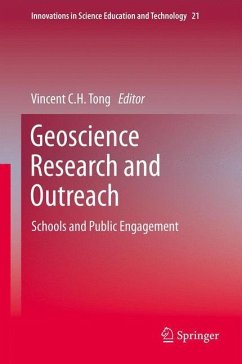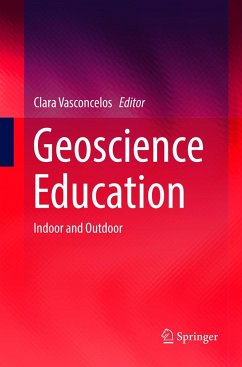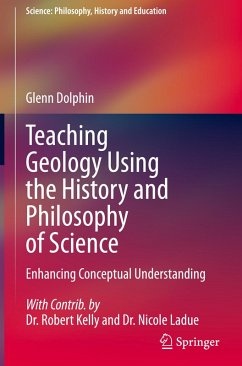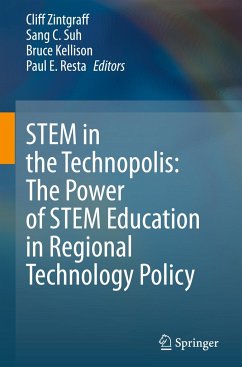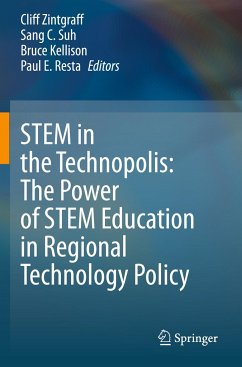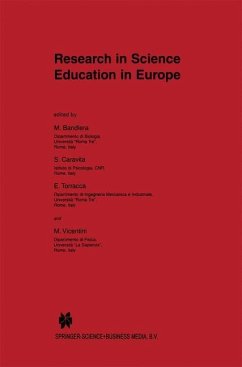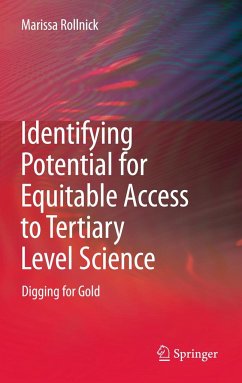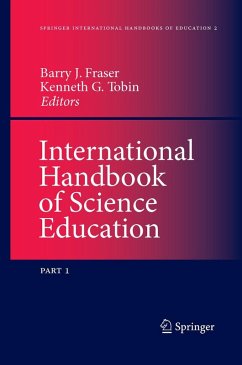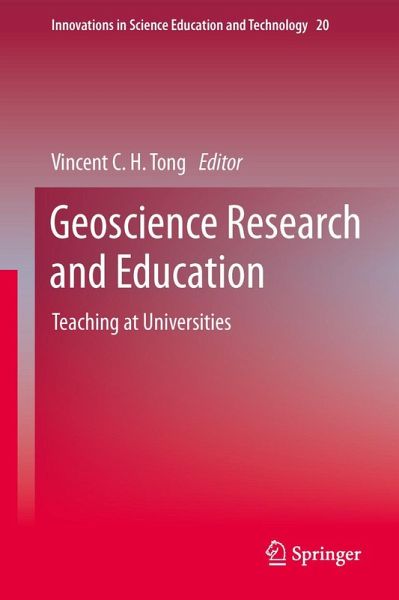
Geoscience Research and Education
Teaching at Universities
Herausgegeben: Tong, Vincent C. H.

PAYBACK Punkte
38 °P sammeln!
Focusing on geoscience, this book applies a uniquely cross-disciplinary perspective to its examination of the relationship between scientific research and teaching at universities. Contributions show how the use of technology and innovative pedagogical design allows students at different stages of their university studies to develop skills and experience in geoscience research. The book offers wide-ranging insight from academics in geoscience, science education and higher education policy and pedagogy, as well as from students and industry experts.The opening section sets the context, with a c...
Focusing on geoscience, this book applies a uniquely cross-disciplinary perspective to its examination of the relationship between scientific research and teaching at universities. Contributions show how the use of technology and innovative pedagogical design allows students at different stages of their university studies to develop skills and experience in geoscience research. The book offers wide-ranging insight from academics in geoscience, science education and higher education policy and pedagogy, as well as from students and industry experts.
The opening section sets the context, with a chapter on teaching and research in the contemporary university by a world-leading academic in higher education, and an essay by the editor on the case of moving from research-implicit to research-enhanced teaching. Part Two addresses the research-teaching nexus in geoscience, offering chapters entitled The Challenge of Combining Research and Teaching: A Young Geoscientist's Perspective; Teaching on the High Seas: How Field Research Enhances Teaching at All Levels; Curricula and Departmental Strategies to Link Teaching and Geoscience Research; and Geoscience Internships in the Oil and Gas Industry, among others. In Part Three, the use of technology is discussed in chapters such as Using Interactive Virtual Field Guides and Linked Data in Geoscience Teaching and Learning; and Towards Technology- and Research-enhanced Education (TREE): Electronic Feedback as a Teaching Tool in Geoscience. The Program Design section includes chapters on Introducing University Students to Authentic, Hands-on Undergraduate Geoscience Research, and the opportunity to link research and teaching in students' final projects and more.
Geoscience Research and Education: Teaching at Universities is a useful resource for understanding the research-teaching nexus and how it has been implemented in different types of universities and in different countries. Science academics seeking to integrate research into teaching will find the book highly relevant to their work. The emphasis on using technology as a means to link research and teaching will be of great interest and practical benefit to learning technologists, science educators and university policymakers.
Together with the companion volume Geoscience Research and Outreach: Schools and Public Engagement, this book showcases the key role that geoscience research plays in a wide spectrum of educational settings.
The opening section sets the context, with a chapter on teaching and research in the contemporary university by a world-leading academic in higher education, and an essay by the editor on the case of moving from research-implicit to research-enhanced teaching. Part Two addresses the research-teaching nexus in geoscience, offering chapters entitled The Challenge of Combining Research and Teaching: A Young Geoscientist's Perspective; Teaching on the High Seas: How Field Research Enhances Teaching at All Levels; Curricula and Departmental Strategies to Link Teaching and Geoscience Research; and Geoscience Internships in the Oil and Gas Industry, among others. In Part Three, the use of technology is discussed in chapters such as Using Interactive Virtual Field Guides and Linked Data in Geoscience Teaching and Learning; and Towards Technology- and Research-enhanced Education (TREE): Electronic Feedback as a Teaching Tool in Geoscience. The Program Design section includes chapters on Introducing University Students to Authentic, Hands-on Undergraduate Geoscience Research, and the opportunity to link research and teaching in students' final projects and more.
Geoscience Research and Education: Teaching at Universities is a useful resource for understanding the research-teaching nexus and how it has been implemented in different types of universities and in different countries. Science academics seeking to integrate research into teaching will find the book highly relevant to their work. The emphasis on using technology as a means to link research and teaching will be of great interest and practical benefit to learning technologists, science educators and university policymakers.
Together with the companion volume Geoscience Research and Outreach: Schools and Public Engagement, this book showcases the key role that geoscience research plays in a wide spectrum of educational settings.





